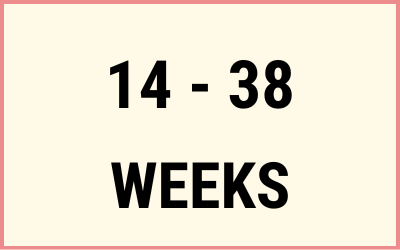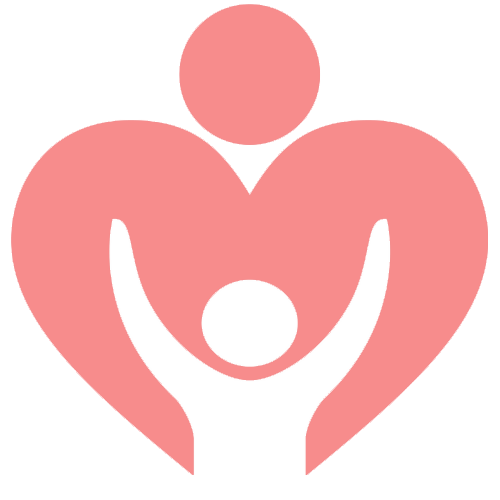Pain during pregnancy can be a natural consequence of this condition or a sign of serious health problems. Pain in the back and abdomen is usually temporary. They arise for simple physiological reasons: implantation of the embryo, growth of the uterus, and displacement of internal organs.
The lower back most often hurts due to disorders of the musculoskeletal system, a change in the center of gravity, and the shape of the spine. It is not normal if the pain intensifies over time or manifests itself in an acute form.
When Lower Back and Abdomen Pain Starts in Pregnancy?
The first abdominal pain can overtake in the first trimester of pregnancy. They begin to get stronger as the uterus grows. This is typical for the end of the first trimester. Lower back pain may appear in the middle of the second trimester. They begin along with the displacement of the internal organs with a significant increase in the uterus.
EXACT WEEKS IT MAY HAPPEN
Minor pains are observed at the 14th and 16th weeks of pregnancy. The most severe pain in the lower back and abdomen appear from the 19th week.
This is the stage of intensive growth of the abdomen. The uterus stretches the ligaments and muscles. This is felt in the form of pulling sometimes severe pain.

When will it end?
Severe pain in the abdomen and lower back normally should not be after the 20th week. Pain can continue up to the 38th week with posture disorders, a large belly, or the presence of concomitant health problems. The painful syndrome stops after the woman gets used to the physiological changes in the body.
How Does it Feel?
Pain can be felt by a woman sharply or gently. It all depends on the causes of their appearance and the individual pain threshold of the pregnant woman. The spectrum of negative feelings is very wide. From sharp and unbearable pains that hinder movement to sensations of heaviness and pressure. Pain should not be complicated by concomitant symptoms.
Acute
Pain in the abdomen in severe form is expressed in a sharp spasm. It paralyzes the movement of the pregnant woman and makes it impossible to change position. This pain lasts for more than a few minutes. The pain in the lower back is constricting, strong, and long.
Mild
Pain in the abdomen and lower back in a mild form is felt as pulling and aching. They are similar to the feelings during menstruation. They are short-lived and easily fixed. Pass after a change in position and a period of rest.
Pain in the abdomen and lower back can occur simultaneously or at different times.
Prevention methods
It is necessary to eliminate the existing problems with the back to prevent pain in the abdomen and lower back. It can be incorrect posture, osteochondrosis, scoliosis, sciatica, and so on. It is worth treating your health, undergoing therapy, and bringing your condition to remission before pregnancy. Ways to prevent pain in the abdomen and lower back:
Strengthening the muscular frame
Pay special attention to the muscles of the back and abdomen in preparation for pregnancy. Do exercises to strengthen your abs, arms, shoulders, and lumbosacral region. Perform leg stretches and gymnastics to increase the elasticity of the ligaments in the pelvic area. The risk of acute manifestation of pain in the lower back and abdomen during the gestation period will decrease in this case.
Normalization of the menstrual cycle
It is necessary to fight immediately if women’s health fails. Track the regularity of the menstrual cycle before pregnancy. Check the level of female hormones and discuss with the gynecologist negative and painful symptoms during PMS. Find out the cause of the failure of the cycle and eliminate it before conception. So the manifestation of pain symptoms during the gestation period will decrease as much as possible.
Check your kidneys
A common cause of back pain is problems with the excretory system. The kidneys give rise to severe drawing pain in the small of the back if their work is disturbed by pregnancy. Regular ultrasound will help control the problem. A pre-passed examination to stop symptoms in the early stages of the disease.
Why Does it happen during Pregnancy
The cause of pain in the abdomen and lower back can be physiological or pathological. Blood flow to the uterus increases greatly and blood vessels dilate at the beginning of pregnancy. Lower back pain can be caused by the production of relaxin, which relaxes the muscles and ligaments.
The uterus in the second trimester begins to grow strongly and creates increased pressure in the abdominal cavity. This gives a feeling of pressure, aching pain, and heaviness. There is a displacement of the internal organs. The spine bends under the influence of the growth of the abdomen, shifting the center of gravity. This leads to feelings of tension and pain.
Drawing pains in the lumbar region can be harbingers of childbirth at the end of pregnancy. This is how a woman’s body prepares for contractions. Pathological causes of pain: infectious diseases, appendicitis, cysts, ectopic pregnancy, miscarriage.
Remedies
Do not fight pain if it is mild. You need to take action when the symptom is pronounced and severely limits your motor activity. Among the means of protection can be distinguished non-pharmaceutical and medicinal. A quick result will come if you know the exact cause of the pain syndrome. The main remedies for pain in the abdomen and lower back:
Lumbar massage
Drawing pains in the lumbar region may appear due to muscle spasms. Gentle massage can help reduce pain and relax muscles. You can do it yourself or ask for the help of loved ones. This method is recommended to be used only if you are sure that the cause of pain is not pathological. If there are no problems with urination and kidneys.
Sleep on your side
Try to sleep on your side with the first noticeable rounding of the abdomen. This will reduce the load on the internal organs and eliminate the cause of pain in the abdomen and back. Lying on your side, your muscles are relaxed and your belly is not depressed. Circulation is not disturbed.
Painkillers
Pain relief drugs may be prescribed by doctors in extreme cases of severe and prolonged pain. They can be antispasmodics that relax smooth muscles or analgesics. Only a doctor can prescribe a specific drug. He will assess all the risks, and possible consequences and prescribe treatment.
WHEN TO CONTACT A DOCTOR?
It is worth consulting a doctor when there are accompanying symptoms of pain. These include bloody discharge from the vagina, cloudy urine, and pain when urinating, high fever, nausea and vomiting without toxicosis, sharp and very severe pain in the abdomen that does not go away for a long time. You should not wait if the belly hurts very much. Especially when it happens at the end of the third trimester.
What Not to Do
No need to endure severe pain in the lower back and abdomen. It is better to call an ambulance or a doctor at home. Do not self-medicate or untested methods of dealing with pain. Try not to panic and act according to the situation. The main prohibitions for the appearance of pain in the abdomen and lower back:
Do not carry heavy things
The situation can be easily aggravated by lifting and carrying heavy weights and increased physical activity. Try to take care of yourself during periods of pain.
Do not take a sitting position
Try to immediately lie down when pain occurs, or at least take a reclining position of the body. You will not be able to relax the muscles of your back and legs while sitting. It will only prolong the pain.
Don’t do any exercise
It is better to refrain from exercising if lower back pain is associated with abdominal pain. They can cause great damage to the health of the mother.












